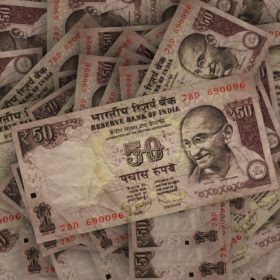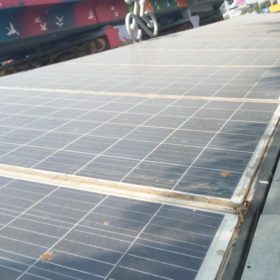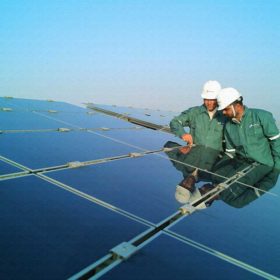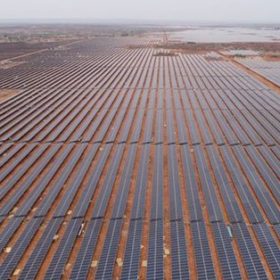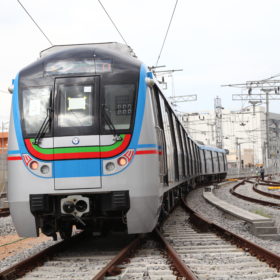ICRA downgrades 1.9 GW of wind, solar projects amid headwinds
Continuing delays in payments from utilities, regulatory uncertainty on tariff matters and tight financing have hit the industry hard.
Minister advises developers to turn to court to secure clean energy monies owed by electric utilities
The financial failings of India’s electric companies have once again come to the fore as the power minister warned the seven worst offending states the lengthening debts they owe renewables developers could be recovered via the National Company Law Tribunal.
Telangana targets 5 GW of renewables next year
Decentralized model of solar project development has avoided the need to spend huge amounts on grid upgrades in India’s newest state. With EV charging plans advancing Telangana now intends to change policy to reflect falling solar costs.
Care Ratings revises outlook on 11 solar developers to negative
The revision in outlook reflects increased counterparty risk and weakening in the liquidity position of these generators owing to significant delays in the receipt of payments from Telangana DISCOMs.
Visaka’s solar roofing to power Air India SATS’ walkways
Air India SATS has introduced new aircraft-boarding walkways that use integrated solar roofing panels from Visaka Industries to run two air-conditioners for up to six hours.
Vikram Solar commissions 5 MW solar plant for state-owned Bharat Dynamics Limited
The plant was conceived under viability gap funding scheme for Ministry of Defence establishment to set up 300 MW of grid-connected and off-grid solar power projects at their locations.
BHEL tenders 69 MW solar project work for SCCL in Telangana
The state-owned engineering major has invited bids for supply of balance-of-system items, and installation and commissioning of an aggregate capacity of 69 MW (AC) grid-connected solar plants for Singareni Collieries Company Limited in Telangana. The projects—including 39 MW at Yellandu village and 30 MW at Manuguru—will come up in Bhadadri Kothagudem district of the state. Bidding closes on July 31.
L&T Hyderabad Metro to get 8 MW solar plants by end of 2019
The captive solar plants in Metro depots and on station rooftops will meet 15% of its total electricity consumption.
Group captive solar projects on the rise among corporates
With Karnataka withdrawing open access waivers and the policy not replicated elsewhere, corporate buyers are increasingly favouring group captive projects that are exempt from the cross-subsidy surcharge—the largest and most unpredictable component of grid charges for open access power.
Government prepares new payment security mechanism for developers — four months after the last one
Solar Energy Corporation of India was given a Rs 500 crore cash pot to help developers in February, but that clearly wasn’t enough, as a second newly announced scheme underscores just how much financial distress the country’s state power companies are in.

